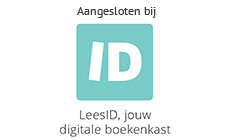| Prijs | € 135,00 |
Niet beschikbaar
EPUB met digitaal watermerk | November 2012 |
Beoordeel dit boek als eerste!Beschrijving
Specificaties
- Uitgever
- Wolters Kluwer Nederland B.V.
- ISBN
- 9789013107647
- Formaat
- EPUB met digitaal watermerk
- Publicatiedatum
- November 2012
- Bestandsgrootte
- 1244713 bytes
- Taal
- Nederlandstalig
Beschrijving
Underlying the allocation of voting rights to shareholders is the assumption that shareholders have a financial interest in the company - or, stated differently, that they are economic owners of the shares to which the voting rights are attached. As a result, shareholders can generally be expected to exercise their voting rights in a manner that they believe most likely to lead to an increase in the value of such interest in the company. Thus, when shareholders are asked, for example, to approve a major acquisition contemplated by the board, we expect shareholders who believe that the acquisition will increase the value of the company to vote in favor of the acquisition. Conversely, we expect those who believe that it won't increase the value to vote against. In practice, however, this assumption does not always hold. It has become clear in recent years that financial innovation has enabled shareholders to adjust their financial interest while retaining their voting rights. This development, which is the driver of Schouten's research, raises a number of interesting and important questions. How does the presence of shareholders whose voting rights exceed their financial interest (this is referred to as 'empty voting') affect the quality of decision-making in the shareholder's meeting? And how about the reverse situation, in which an investor holds a financial interest but lacks voting rights? Schouten has addressed these and related questions in five separate papers, which are published together in this book.
Schrijf een recensie
Specificaties
- Uitgever
- Wolters Kluwer Nederland B.V.
- ISBN
- 9789013107647
- Formaat
- EPUB met digitaal watermerk
- Publicatiedatum
- November 2012
- Bestandsgrootte
- 1244713 bytes Kb
- Taal
- Nederlandstalig












